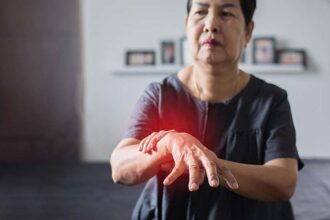Posted: 4/22/2015 10:46 AM by
Interim HealthCare
Elder Care Tips by Interim HealthCare
Awareness is one of the most important characteristics you can have as a family caregiver for your elderly parents. Empowering yourself with knowledge and understanding enables you to give your aging loved ones the highest quality of care possible. One of the conditions you should learn more about as you go through your care journey with your elderly parents is Parkinson’s disease.
Also known as PD, Parkinson’s disease is a neurological disorder that results from the death or impairment of certain neurons within the brain. These neurons are those responsible for the production of dopamine, the brain chemical that controls coordination and muscle function. When damage occurs in approximately 80 percent of these nerve cells, the symptoms of PD appear. Though it appears twice as often in men as it does in women, this disease impacts as many as one percent of the total senior adult population.
Unfortunately, actual diagnosis of Parkinson’s disease is often challenging. It’s important to pay close attention to your aging parents’ behaviors and symptoms so you can accurately report them to their physician. This allows the doctor to determine what types of screenings are necessary to eliminate other potential conditions.
The symptoms of PD vary from person to person, but some of the most common include:
• Persistent body tremors
• Sluggish movements
• Compromised balance
• Stiffness
• Shuffling steps
• Muffled speech
• Hand cramps
• Depression
• Stuck facial expressions
If your elderly parents are diagnosed with Parkinson’s disease, making modifications to your elderly care plan is essential for helping them cope with the progressive symptoms and maintain their quality of life. Some of the changes you can make to keep your parents safe, healthy, and as independent as possible include:
• Adapt the living area. Create a safer, more accessible living environment for seniors who may have difficulty moving due to Parkinson’s disease by removing or tacking down floor rugs, using non-skid floor cleaners, positioning lamps and other electronics where they are not easily pulled or pushed over, arranging furniture to create wide walkways, and removing decorations that could fall or create a tripping hazard.
• Modify the bathroom. Replace doorknobs with handles or pulls that make opening bathroom doors easier. Help protect your senior from accidents by installing grab bars throughout the room, adding slip-free flooring, and adapting or replacing the toilet with a raised seat. Roll or walk-in bathtubs and showers also make maintaining independence and safety while bathing.
• Create steady furniture. Wheels on beds, chairs, and even tables or trays can lead to serious falls for elderly adults with physical and cognitive challenges due to PD. If the senior leans on the furniture or tries to sit or stand, tremors and balance problems can cause the furniture to move, leading to dangerous accidents. Remove these wheels or lock them into place to create steadier, more stable furniture.
• Eliminate reaching. Help your elderly adults by eliminating as much reaching as possible. Rather than doing everything for your parents, make adjustments by placing items at waist level, adding rope to drawer pulls and cabinet handles to make opening these easier, and organizing items needed for daily use in a way that lets your parents access them without having to lean, reach, bend, or stoop.
If your elderly parents are coping with Parkinson’s disease and are in need of assistance, get in touch with the elder care agency in your area to discuss hiring an elderly health care services provider who has experience caring for seniors with PD.
If you have an aging loved one and are considering home care services, contact Interim HealthCare today.








